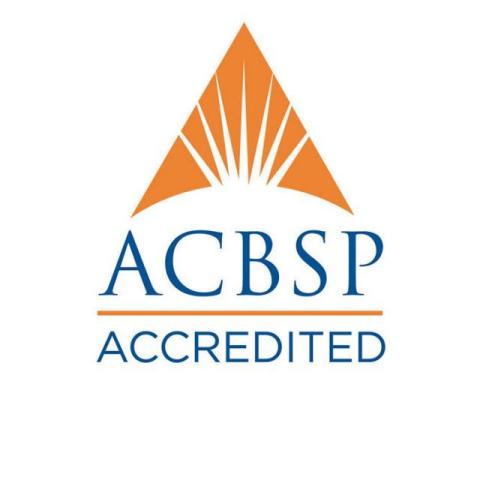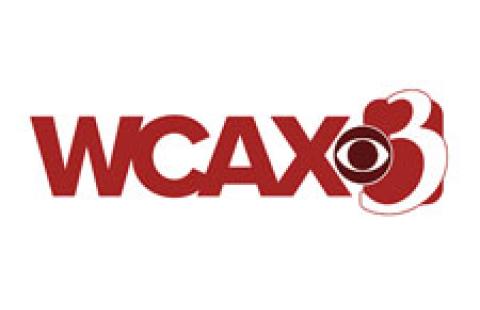The Bachelor of Science in Finance degree program of study offers a complete undergraduate survey of the discipline aimed at preparing students for employment in the field of finance and/or for further graduate work in the field. Basic accounting and quantitative skills, plus economic theory, provide the foundation for further exploring the financial management of the firm, the nature of capital markets, and various investment strategies. Additional areas of study include financial model building techniques and the impact of globalization on financial decision making. All baccalaureate business degree programs are nationally accredited by the Association of Collegiate Business Schools and Programs.
PSU’s finance professors have worked in firms ranging from small businesses to large global corporations, bringing years of professional experience to the classroom. They understand the field of finance and serve as professional mentors as well as teachers.

At PSU you can join a host of active student organizations with business themes. PSU’s Investment Club manages a portfolio of nearly $20,000. Under the supervision of faculty, students in the Investment Club invest in the stock market, with profits funding scholarships. There are also student clubs that focus on starting new businesses, marketing and accounting. These clubs are great ways to meet students with similar interests, network with professionals in the field and run events.

PSU Investment Club

Curriculum & Requirements
FINANCE, Bachelor of Science (120 credits)
The Bachelor of Science in Finance offers an applied program laying a solid finance, economics, and accounting foundation. There is consistent demand for financial professionals in the fields of corporate finance, banking, lending, and investment industries. Upon completion of the program, our students have marketable skills to pursue careers in these extensive areas. The program further equips students with data analytics skills and prepares them for financial advisory roles. Students may alternatively pursue graduate study in the field. All baccalaureate business degree programs offered are nationally accredited by the Association of Collegiate Business Schools and Programs (ACBSP).
| Course | Title | Credits |
|---|---|---|
| Business Common Component | ||
| BUS 1100 | Introduction to Marketing and Sales | 4 |
| BUS 1200 | Business Law and Ethics (DICO) | 4 |
| BUS 1300 | Digital Information Technologies (TECO) | 4 |
| BUS 1400 | Principles of Economics (GACO) (GACO) | 4 |
| BUS 2000 | Financial & Managerial Accounting | 4 |
| BUS 2100 | Introduction to Finance | 2 |
| BUS 2200 | Management and Decision Making | 4 |
| BUS 2300 | Business Writing and Presenting (WRCO) | 4 |
| Major Requirements | ||
| FIN 3200 | Corporate Finance | 4 |
| FIN 3400 | Investment Principles | 4 |
| FIN 4300 | Professional Financial Planning | 4 |
| ECN 4100 | Money and Banking | 4 |
| MGM 4900 | Strategy & Sustainable Competitive Advantage | 4 |
| Tier One Major Elective | ||
| Complete one course from the following: | 4 | |
ECN 3100 | Intermediate Macroeconomics | |
ECN 3200 | Intermediate Microeconomics | |
| Major Electives | ||
| Complete two courses from the following: | 8 | |
ACC 3000/4000 level course | ||
BUS 4620 | Business Internship | |
ECN 3100 | Intermediate Macroeconomics (If it is not taken in the tier one major elective ) | |
ECN 3200 | Intermediate Microeconomics (If it is not taken in the tier one major elective ) | |
ECN 3300 | Managerial Statistics | |
FIN 4200 | International Finance and Economic Policy | |
ECN 4400 | Current Topics in Economics | |
FIN 3300 | Real Estate Investment & Finance | |
FIN 4400 | Seminar in Finance | |
| Quantitative Reasoning in the Discipline Connection | ||
| FIN 3100 | Financial Analytics (QRCO,TECO) | 4 |
| Mathematics Foundations | ||
| MA 2210 | Finite Math with Business Statistics (QRCO) | 4 |
| General Education | ||
| EN 1400 | Composition | 4 |
| IS 1115 | Tackling a Wicked Problem | 4 |
| CTDI | Creative Thought Direction | 3-4 |
| PPDI | Past and Present Direction | 3-4 |
| SIDI | Scientific Inquiry Direction | 3-4 |
| SSDI | Self and Society Direction | 3-4 |
| Directions (choose from CTDI, PPDI, SIDI, SSDI) 1 | 4-8 | |
| WECO | Wellness Connection | 3-4 |
| INCP | Integrated Capstone | 3-4 |
| Free Electives | 14-15 | |
| Total Credits | 120 | |
- 1
Directions should total 20 credits (unless the major has a waiver for a specific Direction).
Check all course descriptions for prerequisites before planning course schedule. Course sequence is suggested but not required.
To complete the bachelor’s degree in 4 years, you must successfully complete a minimum of 15 credits each semester or have a plan to make up credits over the course of the 4 years. For example, if you take 14 credits one semester, you need to take 16 credits in another semester. Credits completed must count toward your program requirements (major, option, minor, certificate, general education or free electives).
| Year One | Credits | |
|---|---|---|
| EN 1400 | Composition | 4 |
| IS 1115 | Tackling a Wicked Problem | 4 |
| Mathematics Foundations Course: | ||
| MA 2210 | Finite Math with Business Statistics (QRCO) | 4 |
| BUS 1100 | Introduction to Marketing and Sales | 4 |
| BUS 1200 | Business Law and Ethics (DICO) | 4 |
| BUS 1300 | Digital Information Technologies (TECO) | 4 |
| BUS 1400 | Principles of Economics (GACO) | 4 |
| PPDI | Past and Present Direction | 3-4 |
| Credits | 31-32 | |
| Year Two | ||
| BUS 2000 | Financial & Managerial Accounting | 4 |
| BUS 2100 | Introduction to Finance | 2 |
| BUS 2200 | Management and Decision Making | 4 |
| BUS 2300 | Business Writing and Presenting (WRCO) | 4 |
| Directions (choose from CTDI, PPDI, SIDI, SSDI) 1 | 4-8 | |
| CTDI | Creative Thought Direction | |
| SSDI | Self and Society Direction | 3-4 |
| SIDI | Scientific Inquiry Direction | 3-4 |
| Finance Electives level 1 - complete on of the following: | 4 | |
ECN 3100 |
Intermediate Macroeconomics | |
ECN 3200 |
Intermediate Microeconomics | |
| Credits | 28-34 | |
| Year Three | ||
| FIN 3100 | Financial Analytics (QRCO,TECO) | 4 |
| FIN 3200 | Corporate Finance | 4 |
| FIN 3400 | Investment Principles | 4 |
| INCP | Integrated Capstone | |
| Directions (choose from CTDI, PPDI, SIDI, SSDI) | 3-4 | |
| Finance Electives level 2 | 4 | |
| Free Electives | 4-6 | |
| WECO | Wellness Connection | |
| Credits | 23-26 | |
| Year Four | ||
| FIN 4300 | Professional Financial Planning | 4 |
| MGM 4900 | Strategy & Sustainable Competitive Advantage | 4 |
| Finance Electives level 2 | 4 | |
| linkurl^/general-education/^Directions (choose from CTDI, PPDI, SIDI, SSDI) | 3-4 | |
| Free Electives | 8-10 | |
| ECN 4100 | Money and Banking | 4 |
| Credits | 27-30 | |
| Total Credits | 120 | |
- 1
Directions should total 20 credits (unless the major has a waiver for a specific Direction).
- Understand the determination of the aggregated economic performance over a business cycle and assess the effects of public fiscal and monetary policies on social welfare and stabilization of the economy within the context of an open economy.
- Explore the various managerial aspects and responsibilities required to conduct financial business activities in dynamic business environment by analyzing financial markets, institutions, and major types of financial instruments.
- Understand the nature of risk, identify objectives and motivations of investors, evaluate risk/reward profiles and utilize critical thinking, analytical tools and economic analysis to identify appropriate investment strategies and support construction of portfolios.
- Explore short- and long-term capital investment opportunities and associated risks in various settings.
Finance is a broad and dynamic area of study, with many career possibilities. While pursuing a Finance degree at Plymouth State, you’ll learn financial management for large corporations and small businesses, investment analysis, international finance and gain an understanding of financial institutions and markets. You can also pursue electives in areas from real estate investment to income tax preparation to public finance, among others.
Explore Program Details
Explore Today.
Realize Tomorrow.









